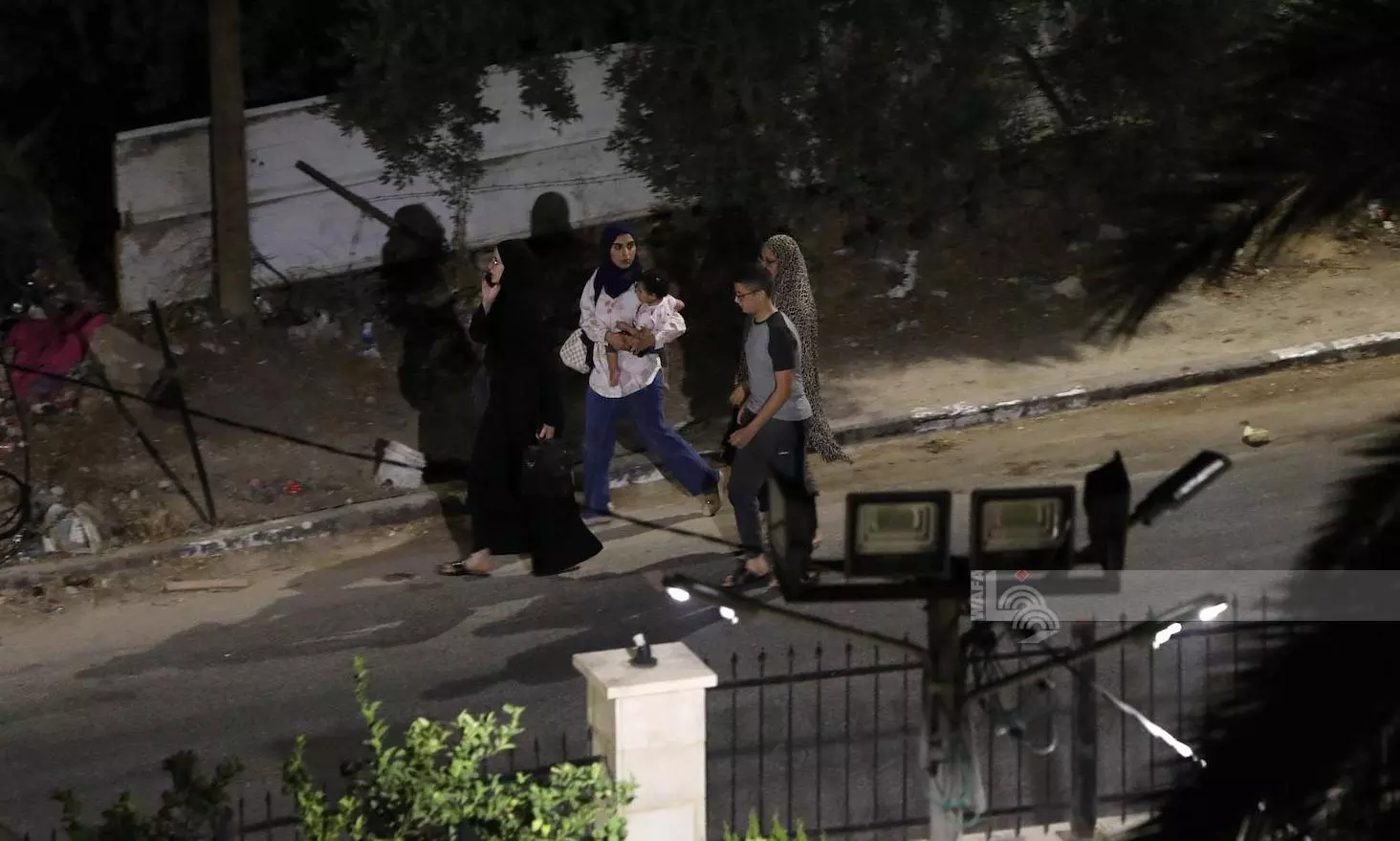
10 deaths, over 100 injured, thousands forced to leave as Israel attacks Palestinian refugee camp
text_fieldsWest Bank: In one of the largest Israeli military operations witnessed in the past two decades, thousands of Palestinians have fled their homes in the Jenin refugee camp located in the occupied West Bank.
According to Palestinian officials, approximately 3,000 people have already left the camp, seeking shelter in schools and other facilities in Jenin city. The ongoing operation, named "Home and Garden," has raised concerns about the safety and well-being of the displaced population.
Palestinian Red Crescent rescue service has reported that the number of displaced individuals is expected to rise further, with urgent needs for food, drinking water, and essential supplies such as milk powder. The fighting, which began with drone strikes and the deployment of ground troops supported by armoured bulldozers and snipers, has resulted in casualties, including 10 deaths and 100 injuries, with 20 in critical condition, according to the Palestinian health ministry.
The international community has expressed deep concern over the escalation of violence. The UN agency for Palestinian refugees (UNRWA) highlighted the urgent humanitarian needs of the camp residents.
The situation has drawn condemnation from the Palestinian leadership, three Arab countries with normalized ties with Israel (Jordan, Egypt, and the United Arab Emirates), and the 57-nation Organisation of Islamic Cooperation.
The Israeli Defence Forces (IDF) justified the military operation by targeting a major Palestinian militant command centre in Jenin camp. The camp, established in the 1950s to house refugees who fled their homes during the creation of the Israeli state in 1948, has become a symbol of armed resistance for Palestinians and a source of concern for Israeli security forces. It is believed to harbour armed fighters from various groups, including Hamas, Islamic Jihad, and Fatah.
Prime Minister Benjamin Netanyahu defended the incursion, stating that Jenin had become a "safe haven for terrorism" and asserting that the operation aimed to minimize harm to civilians.
However, critics argue that the military action, reminiscent of tactics employed during the second intifada, risks further exacerbating the security situation and intensifying the cycle of violence between Israelis and Palestinians.
As the crisis unfolds, the Palestinian leadership has announced a halt in already limited contacts with Israel, freezing security coordination, and planning to increase activity against Israel in international forums.
They also expressed intentions to minimize contact with the United States. The United Kingdom and the United States, while acknowledging Israel's right to self-defence, have called for the protection of civilian lives and restraint in the military operation.
Despite the Israeli government's justifications for the operation, the security situation has continued to deteriorate, with Palestinian attacks becoming increasingly deadly. Last month, four Israelis were killed at a petrol station in the West Bank. These incidents have further fuelled the cycle of violence and intensified tensions between the two sides.
As the situation in Jenin unfolds, the international community has closely monitored the events and expressed concern. The White House defended Israel's right to security while emphasizing the importance of protecting civilian lives. UK Prime Minister Rishi Sunak called for the Israeli military to exercise restraint while supporting Israel's right to self-defence.























